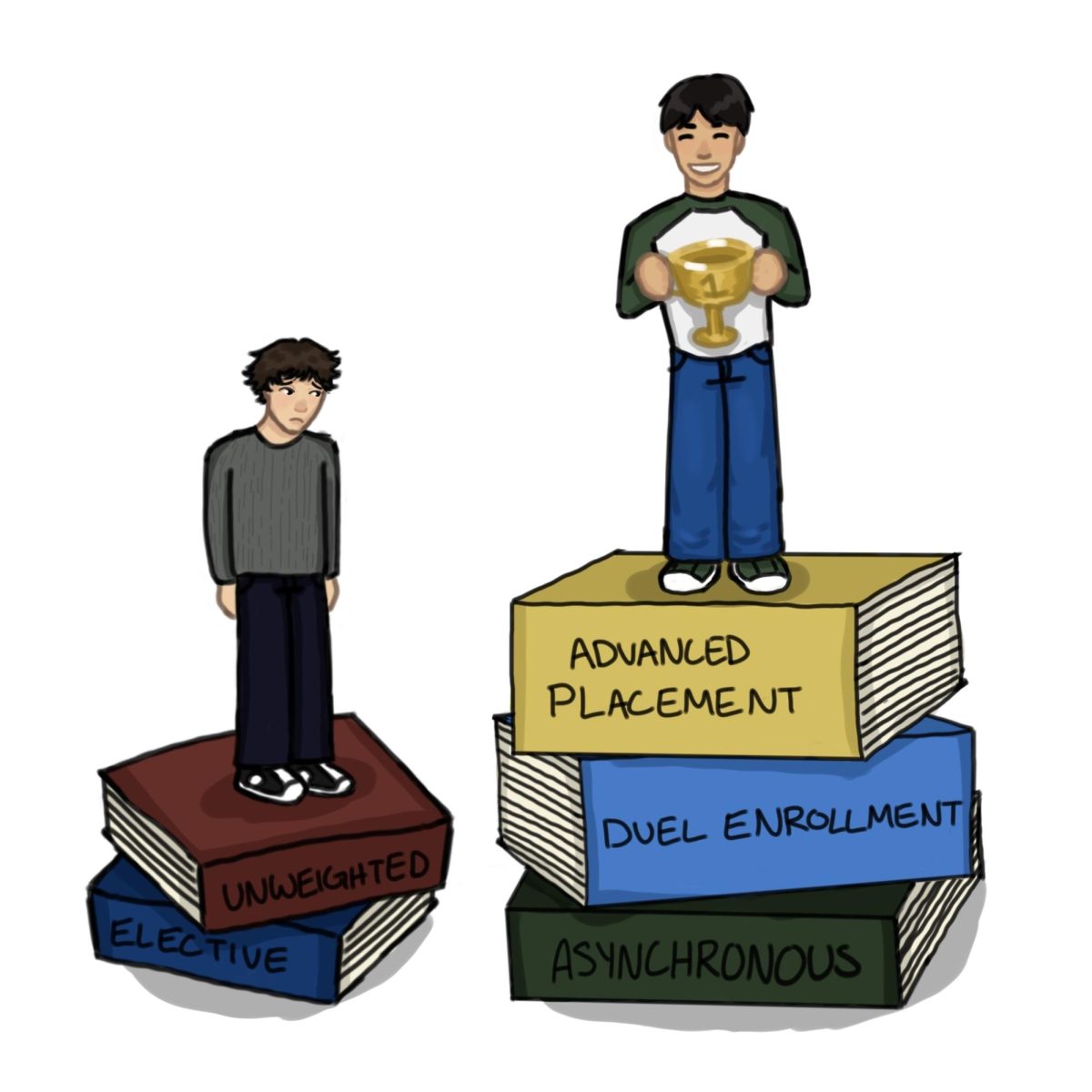Claremont High School prides itself on its academically high-achieving students. The class ranking system has been used to honor students’ achievements and identify top-performing individuals in each class. This ranking is composed of all the classes an individual takes throughout their high school career. An average of the credits earned is then ranked among other students in the same grade. Junior Wei Lim shared his thoughts on how weighted GPA is reflected in student life.
“Weighted GPA shows how much you are willing to sacrifice your life and the things you actually care about to get a high number on a piece of paper,” Lim said.
Weighted classes, usually college classes which offer a more challenging workload, are given a 5.0 value for an A letter grade. Normal high school level courses are titled to a 4.0 value for an A letter grade. However, college classes taken outside of CHS are typically not on a student’s high school transcript, therefore cheating students out of the credit they earn from them. Grant Gullien, assistant principal over instruction and curriculum expands on the motivation of these high achieving students who seek more challenging course offerings.
“Students taking classes outside of CHS are doing it for their own enrichment and education experience,” Gullien said.
Class ranks should ultimately reflect academic rigor and the level of classes a student takes. An issue in the class ranking system is that the structure often hinders the opportunity for students who take college courses to become valedictorian: an honor bestowed to the top-ranked student in the graduating class. Ian Moore, a senior who has taken six classes at the Claremont Colleges explains how taking these courses affected class ranking.
“As I take more college classes my position class ranking keeps dropping,” Moore said. “Personally I don’t really care much. However, for people who want to be the valedictorian it is kind of unfair because you have to be planning before you even get into high school.”
Since weighted GPA is an average of all the classes on your high school transcript, unweighted classes can drop weighted GPA significantly. Oftentimes high level/advanced electives such as Advanced Video Production, Advanced Engineering and Wolfpacket are unweighted, causing a drop in overall weighted GPA. Moore expands on this unjust system.
“The fact that you can just do more work and do as well as you physically can in that additional work and somehow lower your GPA just feels wrong,” Moore said.
Ultimately, the decision to take a college level course outside of CHS is up to each individual student. CHS is dedicated to supporting the overall education of its students. Currently, CHS is reevaluating its recognition system to ensure fairness and emphasize individual success rather than just GPA.
“We are continuing to look at ways to recognize all high achieving students at CHS,” Gullien said.
This initiative has begun with the class of 2028, starting with the limitation of outside courses. The system of valedictorian salutation will continue to be discussed.
“How can we make sure that we are recognizing the achievements of all students?” Gullien said. “CHS does a really good job creating an individual plan for every student to help them achieve what they are seeking to achieve.”
The current class ranking system is not an accurate representation of academic rigor. Students are multifaceted and the ranking system should reflect the different aspects of creating a well rounded individual. CHS is continuing to reflect on the fairness of the current system. Taking classes outside of CHS to engage in more challenging education, or advanced electives to foster growth should not cause GPA drops. In order to create an education system that fosters its students’ interests, the current class ranking system must be reconsidered.













